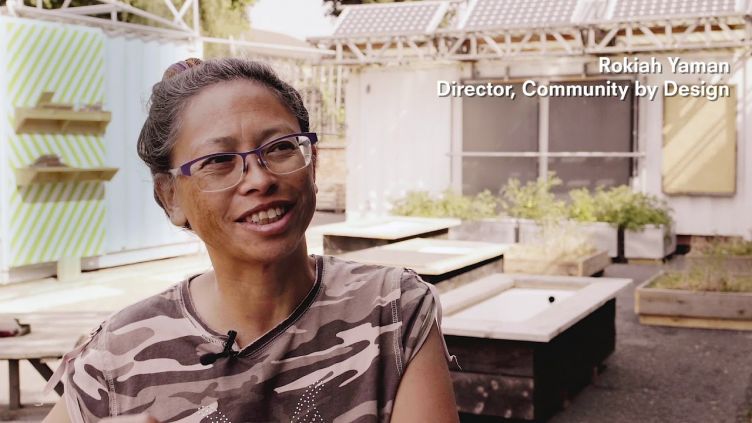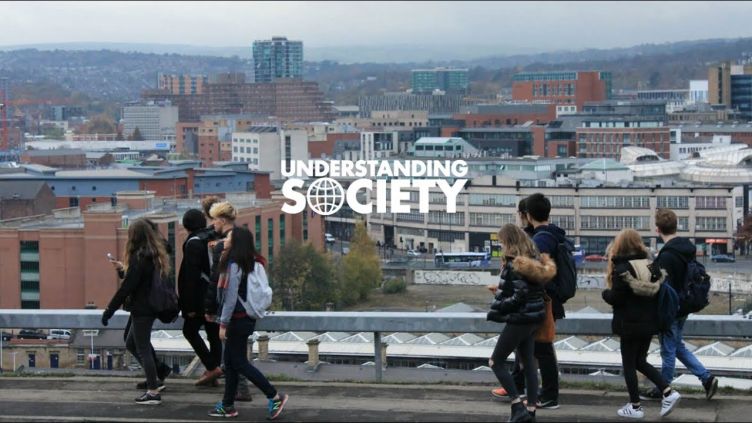Design, engagement and practice
Our researchers are working with an expanded notion of design and an understanding of the architect as a catalyst for social change and innovation.

About us
The work in this group builds on the school’s pioneering practices, pedagogies and research on participation and public engagement. All of the group’s projects are underpinned by tools, processes, methods and knowledge of design.
Research themes
- Ageing and inclusive design of the built environment: research under this theme explores the influence of the built environment on mobility, sensory and cognitive health.
- Building Performance Evaluation: research on the challenges facing the built environment in approaching the design, construction and management of housing.
- Co-produced Urban Resilience: research on participative methods to investigate, design and enhance urban resilience.
- Housing studies: research under this theme addresses post-occupancy evaluation, sustainable design and affordability of social housing.
- Urban Commons: research into democratic forms of social, spatial, economic and ecological organisation and management by communities of differently scaled urban contexts.
- Participative design and civic pedagogies: research under this theme address methodologies and approaches in participatory learning and design.
Research projects
The group’s research projects include:
- ProShare: enhancing diversity, inclusion and social cohesion through practices of sharing in housing and public space (ERA-NET)
- RE-DWELL: delivering sustainable and affordable housing in Europe. Marie Skłodowska-Curie Innovative Action - Innovative Training Network (MSCA-ITN)
- R-Urban: an alternative strategy of regenerating neighbourhoods with the principles of urban commons (ADEME)
- AgeingHood: exploring the intersection between three key domains of human life: ageing, housing and livelihood. Arts and Humanities Research Council (AHRC), under the GCRF Urgency Grants pilot.
- Co-producing healthy communities: backyard retrofit to prevent arboviruses epidemics in Brazilian social housing developments. (QR GCRF Sustainable Partnership)
- A Learning Architecture: developing a collective design pedagogy in Mumbai with Muktangan School and Kamla Raheja Vidyanidhi Institute for Architecture and Environmental Studies (WRDTP PostDoc fellowship)
- Urban Commons: research urban commons and their potentials in democratising access to and management of resources and urban infrastructures through promoting sustainability and community well-being (2018-2021)
Researchers in this group have also been key in developing the Feminist Library, a live archive of feminist works, exhibitions, events, writings from alumni that have been produced by students and staff at the school over the last 20 years.
Another project related to the Design, Engagement and Practice research group is the Resilience Platform.
ProShare: Enhancing Diversity, Inclusion and Social Cohesion through Practices of Sharing in Housing and Public Space
- Funding: ESRC/ERA-NET
- Award value: €285,000 (18 months 2021-2023) (Petrescu PI)
- Team: University of Kassel, University of Sheffield, HTW Berlin, Upssala University, KTH STockholm, TU Wien
Within the framework of the large influx of migrants and refugees in recent years, debates about the future of European cities have referred to problems such as housing shortages, gentrification, segregation as well as unrest, protest and violence. There have also been, however, expressions of solidarity and pragmatic approaches to support marginalized and precarious groups.
Against this backdrop, the project explores:
- The forms and conditions in which practices of sharing in the field of housing and public space take place in socially mixed neighbourhoods in different European cities
- The potential and limits of these practices for fostering participation and collaboration between diverse populations, including migrant and non-migrant communities.
The underlying assumption is that practices of sharing can contribute to reduce space competition, enhance diversity in the urban space by civic engagement and community building and in the long term, contribute to social cohesion.
The project is based on four phases: First, sharing and comparison of partner’s ongoing and previous research results; second, transnational empirical research across eight European cities (Berlin-Stuttgart-Kassel, Wien, Uppsala-Stockholm, London-Paris) third, implementation of ‘‘Practices of Sharing - Labs’ in selected neighbourhoods; fourth, examination of results within the consortium and dissemination of outcomes.
RE-DWELL
RE-DWELL: Delivering sustainable and affordable housing in Europe
Marie Skłodowska-Curie Innovative Action - Innovative Training Network (MSCA-ITN) (1.10.2020-30.9.2024).
RE-DWELL’s innovative research programme and environment will provide a platform for a holistic analysis of affordability and sustainability of housing through a trans-disciplinary perspective.
Enhancing urban resilience through co-produced social, economic and ecological change
Research Impact Case Study
Professor Petrescu’s research has brought significant ecological, economic and social benefits to deprived neighbourhoods across Paris and London.
Her research and its application in seven 'R-Urban' resilience hubs has led to her work being internationally considered an example of best practice of community-led resilient regeneration implementing Sustainable Development Goal (SDG) principles.
In turn, this led to wide-scale adoption of her research findings by policymakers, politicians, architects and communities seeking to provide solutions for local resilience in the context of a climate emergency and with restricted resources.
The research and R-Urban hubs' significance is evidenced by multiple prestigious awards including from the Innovation in Politics Institute (2017).
AgeingHood
AgeingHood explores the intersection between three key domains of human life: ageing, housing and livelihood. The project will propose solutions to address unintended consequences of urban resettlement of low-income older residents of Klong Toey (KT), Bangkok, Thailand.
- Funding: Arts and Humanities Research Council AHRC, under the GCRF Urgency Grants pilot.
- Award value: Approximately £100,000 (12 months)
Co-producing healthy communities: Backyard retrofit to prevent arboviruses epidemics in Brazilian social housing developments
- Funding: QR GCRF (Sustainable Partnership scheme)
- Award value: £40,000 (18 months 2020 to 2021) (Stevenson PI) working with Federal University of Uberlandia, Brazil
Dengue, Zyka and Chikungunya are dangerous arboviruses transmitted by the Aedes aegypti mosquito. In 2019, according to the Brazilian Ministry of Health,1.4 million people were infected, causing 414 deaths.
As a rapid action to address key UN Sustainable Development Goals 3, 11 and 15 this project aims to co-produce an effective backyard retrofit approach and toolkit to prevent proliferation of Dengue, Zika virus and other mosquito related diseases.
It involves an environmental and health audit of backyards by the residents using citizen science following induction by health experts, co-production workshops, and digital socio-technical studies, engaging with residents to refine and spread the resulting toolkit on a socially durable basis.
Studies show that the proliferation of the mosquito is correlated to the accumulation of waste and other water retaining elements in private backyards. Most cases occur in social housing developments, especially in the ‘Minha Casa Minha Vida’ Programme (PMCMV) for 4.4. million homes – the largest Brazilian Social Housing Federal Programme.
In Uberlândia, these cases represent 78% of the 38,000 people infected in 2019. As a rapid action to address key UN Sustainable Development Goals 3, 11 and 15, this project aims to co-produce an effective backyard retrofit approach and toolkit to prevent proliferation of these diseases.
- Stage one involves a detailed and finely granulated environmental and health audit of backyards by the residents using citizen science following induction by health experts.
- Stage two uses four digital co-production workshops with experts to define potential solutions using existing techniques but new methods of application.
- Stage three uses digital socio-technical studies to assess the application of the solutions
- Stage four consolidates the approach through a further expert-led digital workshop engaging with residents to refine and spread the resulting toolkit on a socially durable basis, while stage five uses a digital legacy workshop to develop the project at scale.
Urban Commons
Research conducted by a team set up in 2018 through regular activities, including seminars and workshops at Sheffield and other institutions (eg CSM/UoA London, LondonMet) involving academics, PhDs as well as urban grassroots groups in order to expand collective understanding of urban commons and its potentials in democratising access to and management of resources and urban infrastructures through promoting sustainability and community wellbeing.
The Handbook for Urban Commons is a research and pedagogical tool targeting graduate and post-graduate students as well as international urban practitioners and researchers.
Group members
- Doina Petrescu
- Fionn Stevenson
- Karim Hadjri
- Isaiah Durosaiye
- Nicola Antaki
PhD students
Karim Hadjri:
- Aliyu Abubakar
- Jingjing Wang
- Yiru Pan
- Yanisa Niennattrakul
- Esra Can
- Suyee Jung
Doina Petrescu:
- Alexandre Axinte
- Maria Alexandrescu
- Deniz Kesici
- Thomas Moore
- Ana Mendez des Andes
- Katharina Moebus
- Iulia Hurducas
- Andrew Belfield
- Jakleen A Al-Dalal’a
- Helen Stratford
Lines of Flight PhD research group
Fionn Stevenson:
- Melis Tekin
- Maha Basha
- Jennifer Brierley
- Ayse Humerya Bas
- Rawdah Alzahrani
- Olivia Espinosa Trujillo
- Omar Hamed
Other projects
Resilience Platform
Brings together research across the School and wider University in climate, demographics, governance and economic stability.
Odessa
Odessa is a EU-China project on understanding population change focussed on care delivery models that support ageing-in-place (ESRC).
Experimental co-Design Approaches (EcoDA)
EcoDA is funded by Horizon2020 (2016-17) and introduces the idea that open digital toolkits can support the replication of resilience practices.


